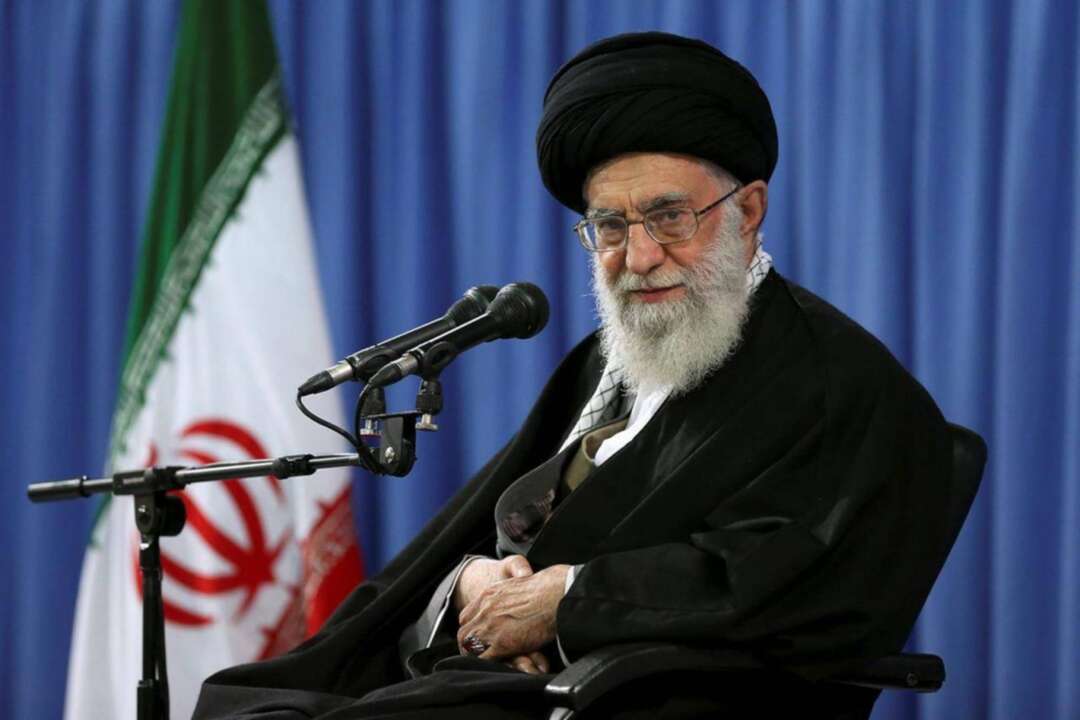-
Inflaming the Scene.. Iranian Parliament Speaker: Khamenei is the Pillar of the Lebanese People
-
The Iranian official's statements reveal Tehran's strategy to exploit the current crisis in Lebanon to expand its influence, ignoring Lebanese sovereignty and national interests

Iranian Parliament Speaker Mohammad Baqer Qalibaf sparked a new wave of controversy in Lebanon with provocative statements, just two days after causing an uproar about negotiations with France regarding the Lebanese situation.
Qalibaf stated in a press interview today, Sunday: "The main pillar of the Lebanese people is the Supreme Leader Ali Khamenei and the Iranian officials and people." He added, speaking about the situation in the region: "The strategic defeats suffered by the Zionist entity on the ground have made the situation extremely difficult for Israel."
In a statement that sparked more controversy, Qalibaf thanked "all Lebanese citizens and officials who showed him love during his visit to Lebanon," surprisingly adding: "But we must not forget that we are all soldiers in the service of the Islamic Republic of Iran."
Qalibaf's previous statements had provoked angry reactions in Lebanon, where caretaker Prime Minister Najib Mikati expressed his surprise at the Iranian official's talk about Tehran's readiness to negotiate with France regarding the implementation of UN Security Council Resolution 1701 in southern Lebanon.
Mikati emphasized that "the issue of negotiating to implement UN Resolution 1701 is exclusively handled by the Lebanese state," stressing that "everyone is required to support it in this direction, not to seek to impose new guardianships that are rejected in all considerations."
It's worth noting that Qalibaf visited Beirut on October 12, where he renewed his country's support for Hezbollah and the Lebanese people. He offered to provide aid to Lebanon on the condition that it be transferred through a direct relief bridge between Tehran and Beirut, under government supervision.
On the other hand, many Arab countries, including Saudi Arabia, UAE, Jordan, and Egypt, have provided and continue to provide relief aid to Lebanon during the past period, while Iran has so far refrained from sending any aid to the country that has been subjected to violent Israeli raids for weeks, leading to the displacement of more than a million Lebanese from their homes.
These statements and developments raise questions about the extent of Iranian intervention's impact on Lebanese sovereignty and regional stability, in light of the current crisis Lebanon and the region as a whole are going through.
Levant-Agencies
You May Also Like
Popular Posts
Caricature
BENEFIT Sponsors BuildHer...
- April 23, 2025
BENEFIT, the Kingdom’s innovator and leading company in Fintech and electronic financial transactions service, has sponsored the BuildHer CityHack 2025 Hackathon, a two-day event spearheaded by the College of Engineering and Technology at the Royal University for Women (RUW).
Aimed at secondary school students, the event brought together a distinguished group of academic professionals and technology experts to mentor and inspire young participants.
More than 100 high school students from across the Kingdom of Bahrain took part in the hackathon, which featured an intensive programme of training workshops and hands-on sessions. These activities were tailored to enhance participants’ critical thinking, collaborative problem-solving, and team-building capabilities, while also encouraging the development of practical and sustainable solutions to contemporary challenges using modern technological tools.
BENEFIT’s Chief Executive Mr. Abdulwahed AlJanahi, commented: “Our support for this educational hackathon reflects our long-term strategic vision to nurture the talents of emerging national youth and empower the next generation of accomplished female leaders in technology. By fostering creativity and innovation, we aim to contribute meaningfully to Bahrain’s comprehensive development goals and align with the aspirations outlined in the Kingdom’s Vision 2030—an ambition in which BENEFIT plays a central role.”
Professor Riyadh Yousif Hamzah, President of the Royal University for Women, commented: “This initiative reflects our commitment to advancing women in STEM fields. We're cultivating a generation of creative, solution-driven female leaders who will drive national development. Our partnership with BENEFIT exemplifies the powerful synergy between academia and private sector in supporting educational innovation.”
Hanan Abdulla Hasan, Senior Manager, PR & Communication at BENEFIT, said: “We are honoured to collaborate with RUW in supporting this remarkable technology-focused event. It highlights our commitment to social responsibility, and our ongoing efforts to enhance the digital and innovation capabilities of young Bahraini women and foster their ability to harness technological tools in the service of a smarter, more sustainable future.”
For his part, Dr. Humam ElAgha, Acting Dean of the College of Engineering and Technology at the University, said: “BuildHer CityHack 2025 embodies our hands-on approach to education. By tackling real-world problems through creative thinking and sustainable solutions, we're preparing women to thrive in the knowledge economy – a cornerstone of the University's vision.”
opinion
Report
ads
Newsletter
Subscribe to our mailing list to get the new updates!






















